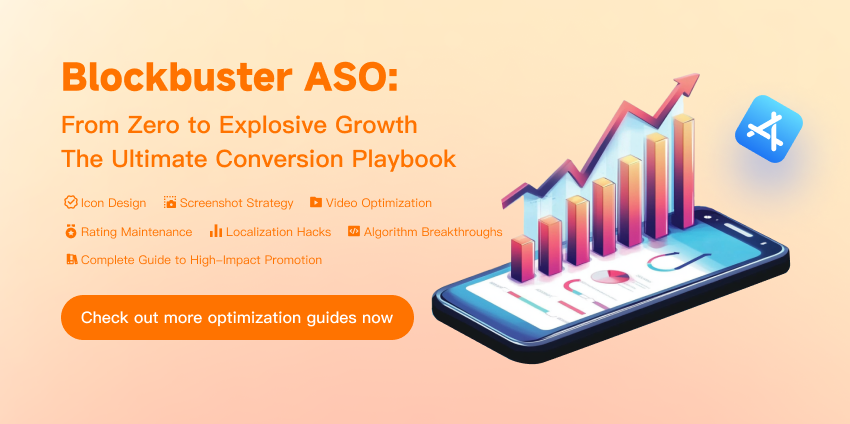
Loading...
Free consultation with ASO specialists
Doing ASO for the first time or have no idea how to carry out targeted optimization of your app?
We offer one-on-one customized services provided by app marketing specialists
Behavior App Store
What is App Store Optimization
App Store Behaviorology is a science that studies user interaction behaviors (such as searching, browsing, clicking, downloading, reviews, etc.) within app stores (such as App Store, Google Play) through data analysis, machine learning algorithms, and artificial intelligence technology. It analyzes the decision-making logic and preference patterns of users. It focuses on how users discover, evaluate, and choose applications, and provides strategic basis for developers to optimize store page experience and improve application exposure and conversion by mining the rules behind behavioral data (such as keyword search habits, screenshot attention, ratings sensitivity).
The Importance of App Store Optimization
-
Cracking the Black Box of User Decision Making
Every click (such as prioritizing video previews over screenshots) and swipe (such as quickly scrolling through lengthy descriptions) made by users in the app store reflects their implicit needs. Behavioral analysis can convert these fragmented actions into quantifiable optimization guidelines, helping developers accurately match user expectations.
-
Improve the efficiency of traffic utilization
More than 60% of downloads from the app store come from search scenarios, but users only view the first five search results on average. Behavioral science helps apps capture user attention in limited exposure by identifying high-conversion keywords and optimizing the information density of titles and subtitles (such as covering core selling points in the first 30 characters), reducing wasted traffic.
-
Building a virtuous cycle of growth
In the entire chain from "user discovery of applications" to "retention/payment after download", behavioral data can be used to guide product iteration in reverse (such as the "slow loading" problem concentrated in poor reviews driving technical optimization), forming a positive cycle of "store page optimization → increase in downloads → user feedback feedback → product experience upgrade".
How do Ratings and Reviews affect app growth?
-
Accurate recommendation and exposure breakthrough
App store algorithms (such as the "related apps" and "you may also like" in App Store) rely on user behavior data (such as download history of similar users) for recommendations. Behavioral analysis improves the probability of entering high-value recommendation pools by optimizing app tags (such as adding precise tags like "Gen Z social"), which is a key path to break through the monopoly of top developers, especially for small and medium-sized developers.
-
Store Page Conversion Rate Optimization
-
Visual focus design: through heat map analysis, priority display of core functions;
-
Copywriting Persuasion Enhancement: Extract high-frequency positive words (such as "efficient" and "convenient") and write them into the description, use the "social identity principle" in behavioral science to lower the decision-making threshold;
-
Dynamic content adaptation: Adjust store page content for users in different regions (such as focusing on "privacy protection" descriptions for Japanese users and highlighting "minimalist interface" for European and American users) to achieve personalized conversion.
-
User Quality and Long-term Value Enhancement
By distinguishing the characteristics of "high-value users" and "one-time download users" through behavioral data (such as the former's preference for searching long-tail keywords such as "professional-level photo editing"), developers can be guided to optimize their keyword strategies, attract users with clearer needs and higher retention rates, and reduce subsequent operating costs.
-
Risk Warning and Experience Balance
Monitor abnormal behavior signals, quickly locate the "mismatched goods" problem on the store page (such as exaggerated titles that lead to user expectation bias), avoid negative reviews caused by experience gaps, and protect app store ratings and long-term weights.
App Store behavior is the bridge that connects "user needs" with "app value". By decoding the motivations behind each step of behavior such as search, browsing, and downloading, it helps developers transform the store page from a "static display area" into an "intelligent growth engine". In the current era of intense traffic competition, mastering the laws of behavior means more precise exposure, higher conversion efficiency, and more sustainable user growth. It is the core driving force for mobile applications to go from "being discovered" to "being chosen".
Related terms
